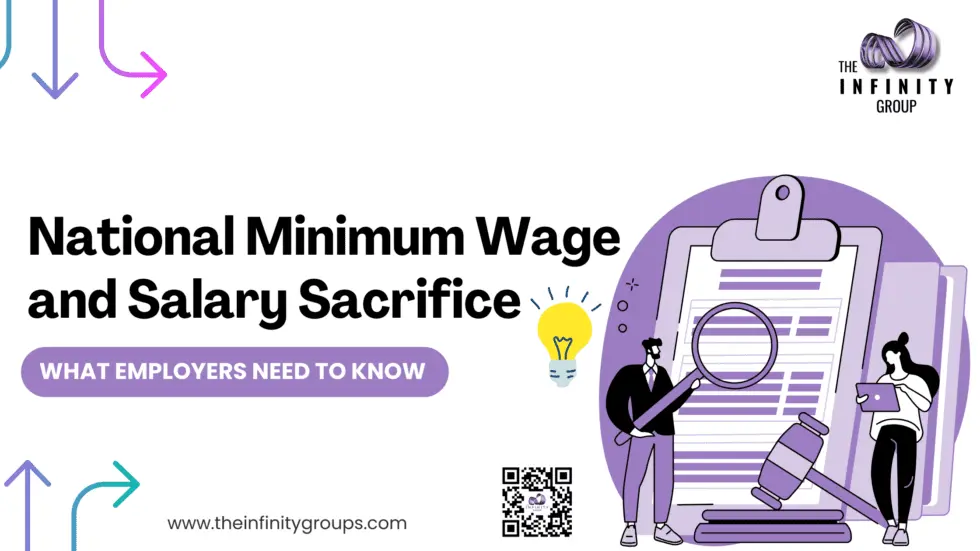Salary sacrifice schemes, like pension contributions, cycle-to-work programmes, and childcare vouchers, are popular ways for employers to provide cost-effective benefits. However, they come with a potential risk: inadvertently breaching National Minimum Wage (NMW) regulations. It’s important for employers to understand how salary sacrifice impacts NMW compliance to avoid penalties.
How Salary Sacrifice Affects NMW
When employees opt for salary sacrifice, their contract is amended to reflect a lower salary. This reduced salary is what must be considered when calculating if the employee is still being paid at least the NMW. Even one-off sacrifices can lead to breaches of NMW regulations, potentially catching employers off guard.
Example: Pension Salary Sacrifice and NMW Breach
Let’s say an employee earning £50,000 annually chooses to make a pension salary sacrifice of £3,000 in March. Before the sacrifice, their earnings for that month are £4,166, but after the sacrifice, their pay is reduced to £1,166, causing an NMW underpayment based on 23 working days.
Penalties for NMW Underpayments
Employers face penalties if they breach NMW rules, even if it’s accidental. The Department for Business and Trade (DBT) does offer leniency in certain cases, particularly if the underpayment is due to voluntary salary sacrifice and the employee has consented to the reduction. However, employers with a history of NMW violations will not qualify for this concession.
How to Avoid NMW Breaches
To stay compliant, employers should:
- Assess Participation: Ensure salary sacrifice does not result in a breach before offering these schemes.
- Monitor Pay: Regularly review employee salaries, especially when NMW rates increase.
- Manage Expectations: Make it clear to employees that salary sacrifice arrangements are only available if NMW compliance is maintained.
Conclusion
Salary sacrifice schemes are beneficial, but employers must exercise caution to avoid costly NMW breaches. The Infinity Group helps businesses navigate payroll complexities, ensuring compliance with regulations and protecting your company from penalties.

